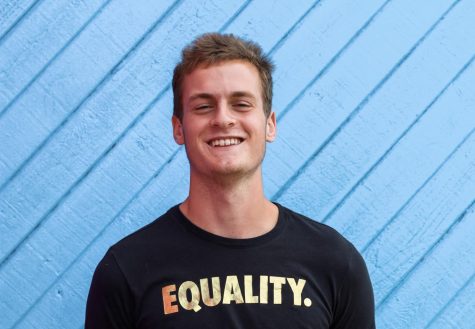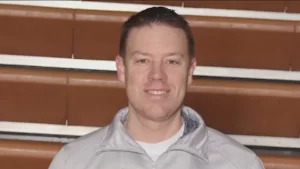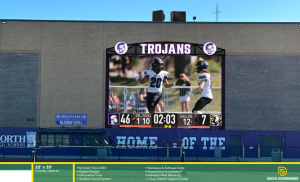Consume with caution: students navigate digital news
January 23, 2019
As our society is becoming increasingly more digital, news can spread at the simple click of a retweet button or the forwarding of an email. The internet is certainly a tool for creating a more unified and interconnect society, but just as it can create a more informed society and a healthier democracy, it can create echo chambers and blur the truth.
An echo-chamber, in simple phrasing, is a term used in media for a form of communication where certain beliefs are amplified by repetition though like-minded individuals. Echo chambers are especially prevalent on social media sites such as Twitter and Facebook, where individuals retweet or share beliefs to their like-minded friends and associates, only for those beliefs to be passed around the same social-circle with little to no dissension and no outside sources to provide perspective or to fact check.
According to a 2018 study by the Pew Research Center, almost 45 percent of teens say they are online “almost constantly,” a 21 percent jump from an identical 2015 study showing the growing use of social media for all types of news consumption.
Teens are receiving their information mainly from their devices and social media, through whatever application that may be. Instagram, Snapchat, and Facebook all feature everything from mainstream to small-time news sources. According to a poll sent out by The Omega, 75% of DGN students receive their news through social media, whereas only 14% of students get their news through traditional print methods.
The main purpose of these applications and websites is not to provide news but to keep your eyes on the screen. While many news sources make money off of getting readers, keeping that clean reputation may be less of a priority for smaller, more radical sources than mainstream sources enabling the spread of more fanatical ideas.
Many partisan accounts may be lumped in unknowingly to people’s feeds, giving everyone—young, old, right, left, or any other group—false information.
Such accounts can be biased towards one way or the other, meaning that the information received is usually one-sided and may not always be accurate. The only appropriate next step is following accounts that show a wide range of facts and making sure they are actually accurate.
Sophomore Julia Latocha describes herself as partisan but believes that partisan social media accounts are not so beneficial.
“I think it can bring like-minded people together, but at the same time some of the accounts are so far to one side that it’s often just totally exaggerated or wrong,” Latocha said.
With its deceptive ways, misinformation is spread through the internet. Because of this, fact-checking becomes more and more important, and now more than ever that skill is self-evidently important.
Latocha also agreed, understanding that “news” from social media could often be stretched to the point of inaccuracy.
“I do [use social media to get news], but I feel like it’s not always a credible method. I’ll see something on social media but I’ll have to fact-check afterward and make sure that it’s accurate,” Latocha said.
Bias and potential inaccuracy are the building blocks of an echo chamber, meaning that the rising use of social media could be creating one-sided thoughts and political polarity in the minds of adolescents.
Sophomore Lauren Philippe has seen several people caught up in these echo-chambers, which makes it difficult for them to understand and argue effectively.
“I definitely know several people that are far too caught up in one side, and they don’t know the facts and can’t begin to understand the other side,” Philippe said.
Philippe has also fallen victim to individuals caught up within echo chambers, and she explains the difficulties of trying to even have a conversation with someone of that extreme.
“If I try to say something, I’d get completely bashed for it. They might say something, and then I’d say something back, and they would just lash out or get angry because they don’t know more than just their side,” Philippe said.


























